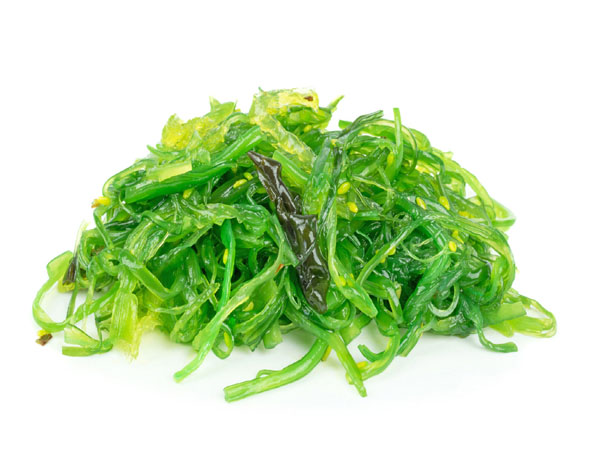
What is Wakame?
Wakame is an edible brown seaweed or kelp common in Japanese, Korean, and Chinese cuisines.
Health Benefits of Wakame: a good source of the following:
1. Magnesium. This mineral is critical in the contraction and relaxation of muscles, function of certain enzymes in the body, production and transport of energy, and the production of protein.
2. Iodine. Iodine is needed for strong metabolism of cells - the process of converting food into energy. It also maintains the balance of the thyroid gland and is needed for the production of thyroid hormones.
3. Calcium. Wakame easily allows for the absorption of calcium into the human body. Each 100 grams of raw material contains 150 milligrams of calcium. Calcium is needed for strong healthy bones and the prevention of osteoporosis.
4. Iron. We need iron because it is essential for the production of red blood cells and the prevention of anemia.
5. Vitamins!
6. Folate. Helps the body make new cells and is especially important for pregnant women.
7. Lignans. Thought to play a role in preventing certain types of cancer, particularly breast cancer.
How can we make wakame?
There are many different ways of re-hydrating it, which you need to do before eating it. Here is one:
"In another bowl, soak the wakame in lukewarm water for 10 minutes. It will swell and become a rich, glossy green. Drain the water, then plunge the seaweed briefly into boiling water. Rinse immediately with cold water to intensify the color. Trim away any rough stems, then coarsely chop it."
Here is a simple wakame salad recipe I concocted at home:
What You Need
How to Make?
Place all the ingredients artfully on a plate: I like to make a bed of arugula with a centered pile of avocado and walnuts and then two piles of wakame on the side. Drizzle olive oil and squeeze lemon over it all. Grind salt and pepper for flavoring.
You might also like to try this delicious wakame salad recipe I found in The New York Times.
We have this available on https://seatechbioproducts.com/wakame-alaria-human-nutrition-powder-25kg.html
Source: http://www.mindbodygreen.com/0-5344/7-Awesome-Health-Benefits-Of-Wakame.html
Photo: http://fishislife.com/en/product-range/frozen-wakame-sesame-salad